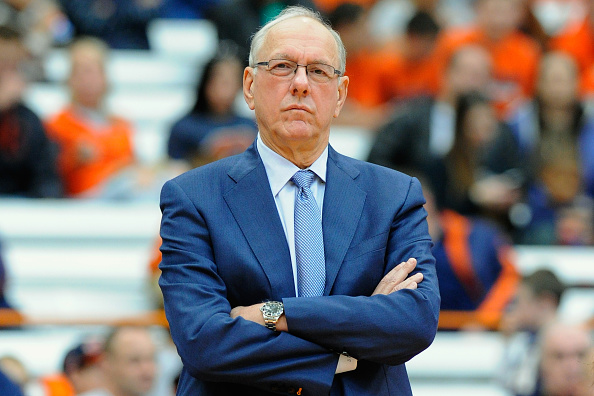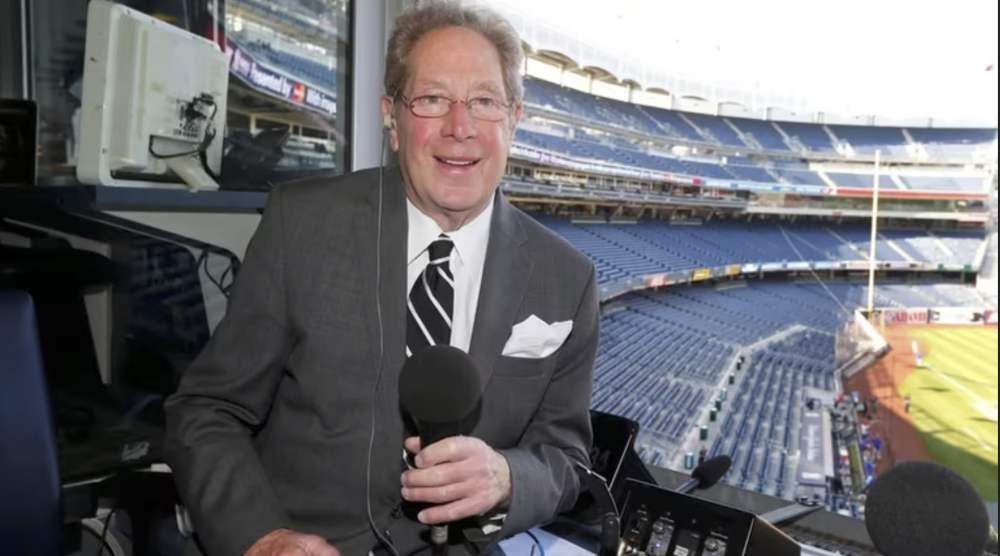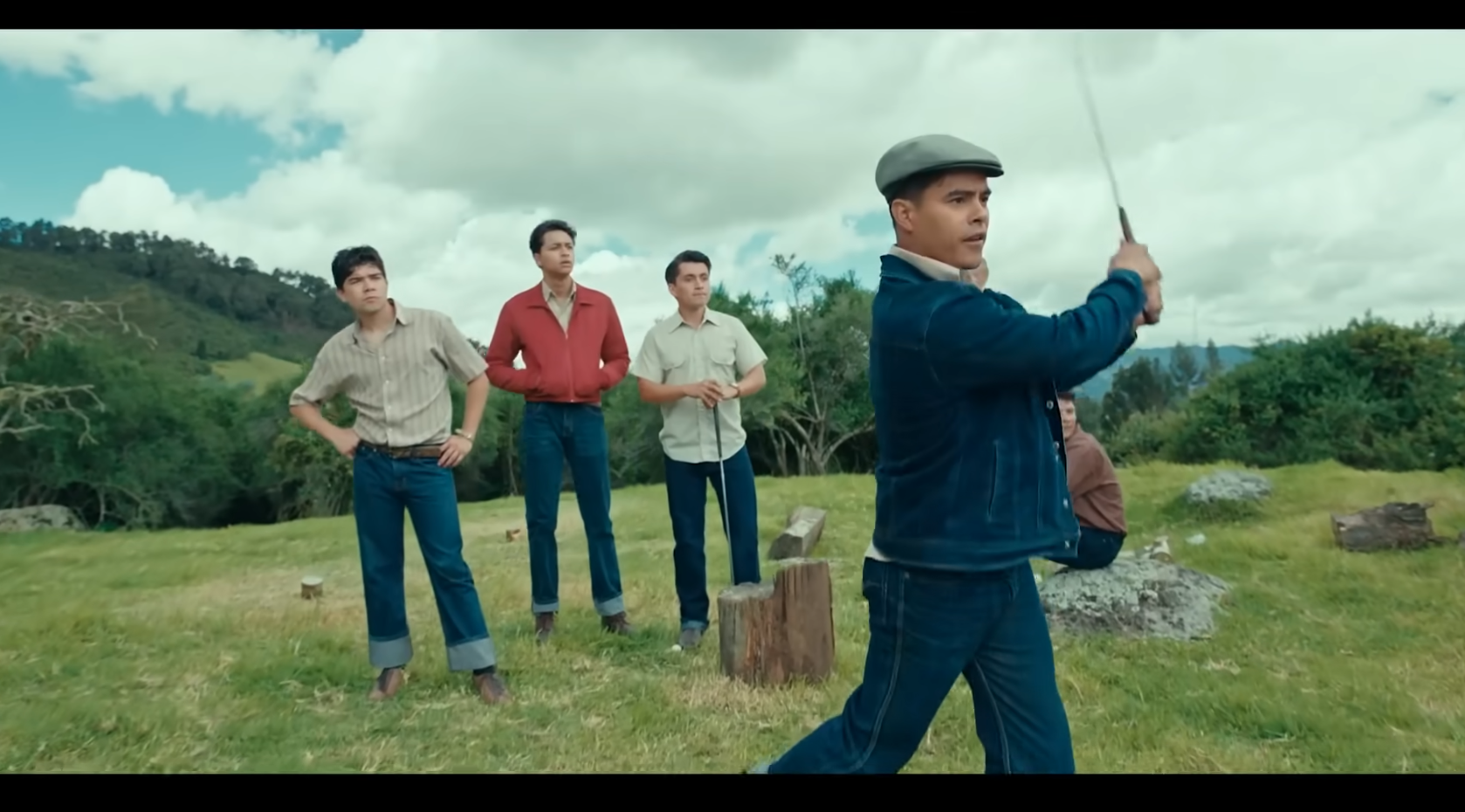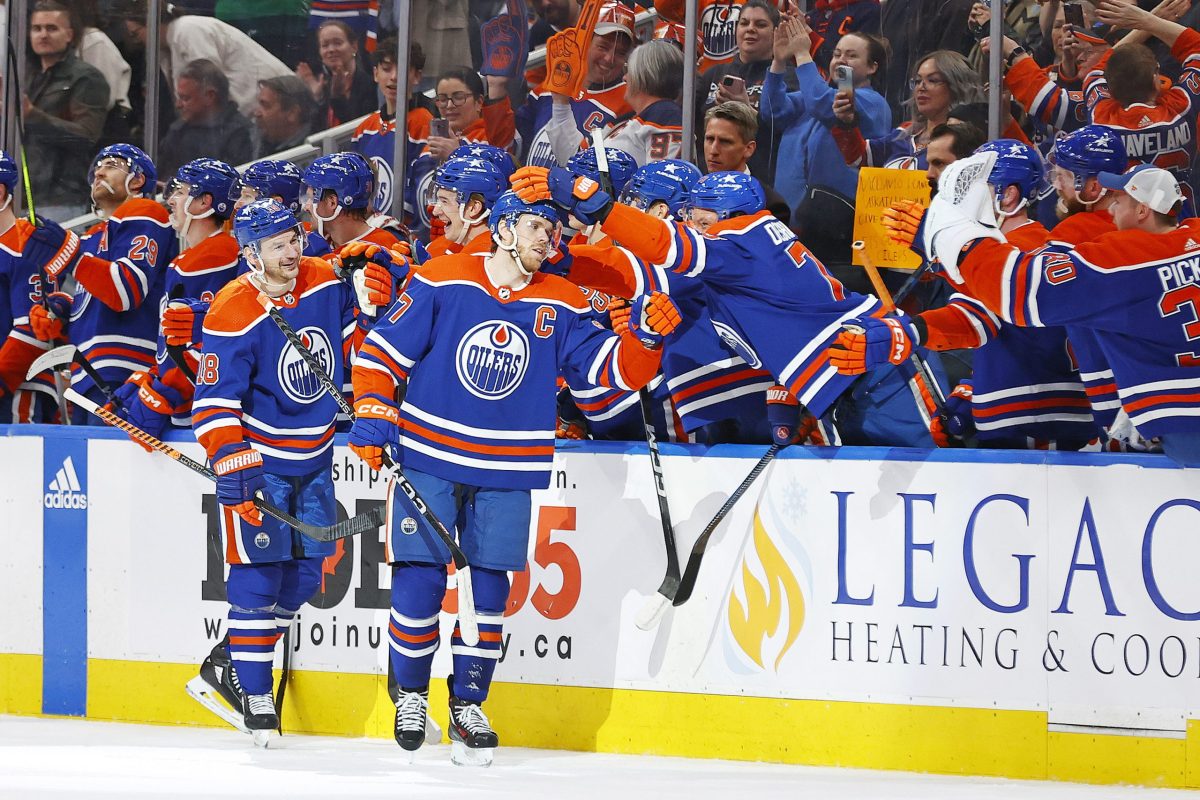Syracuse University men’s basketball coach Jim Boeheim gave a master class in how not to handle a problematic story Saturday, electing not to speak to the media after the Orange’s season-ending loss to North Carolina State. The typical post-game press conference Saturday would have been the first opportunity for media to interview Boeheim following Friday’s release of NCAA sanctions against Syracuse, including lost scholarships, substantial win vacation, fines, and a nine-game suspension for the coach.
It’s believed to be the first post-game press conference Boeheim has skipped in 39 years as Syracuse’s head coach.
Whether passing on that press conference and sending assistant Mike Hopkins instead was Boeheim’s own call or thanks to orders from Syracuse’s athletic department (Brent Axe reports that Boeheim’s bosses told him not to talk to the media), it was a poor decision, and one that’s only going to make the university and the coach look worse. As Scott Phillips writes at College Basketball Talk, Boeheim’s avoidance of questions adds fuel to the fire around those sanctions, only drawing more attention to the story:
Hopkins declined to answer any questions pertaining to the NCAA investigation or the loss of scholarships. He also defended his boss, describing Boeheim at one point by saying, “Coach is a warrior. He’s a superhero. Superhero.”
The Syracuse coach-in-waiting might believe that his former coach is a “warrior” and a “superhero” but I’ve never seen a warrior or superhero run and hide from a group of sports reporters with voice recorders and notepads.
Boeheim could have faced the music, brushed off questions about the investigation like he’s been known to do, and at least shown some respect to the current players whose season he ended prematurely by showing face and saying in person how proud he was of them.
It’s hard to say if Boeheim blew off the press conference or Syracuse asked the head coach to skip the media availability, but this move is going to draw more attention than if Boeheim just answered a few questions.
Phillips hits on an important point there; Boeheim could have accomplished more even without commenting substantively on the investigation. Yes, addressing the numerous issues that investigation found (including drug-testing fraud, academic fraud and boosters paying players, cases serious enough that Yahoo’s Pat Forde and others have called for Boeheim’s resignation) head-on and getting his side of the story out there would have been the smartest move, but even showing up and offering “no comment,” or some variation thereof, to questions about the investigation would have been better for both the coach and the program than this. The Syracuse violations are a big story, and they certainly wouldn’t be going away even if Boeheim was open with the media, but there wouldn’t be the added issue of Boeheim refusing to talk about them and refusing to talk to the press at all.
Sadly, these stories are becoming all too common, especially in the college sports world. From former Michigan head football coach Brady Hoke barring a student newspaper from press conferences to former Louisville head football coach Charlie Strong barring the entire local media to South Carolina head football coach Steve Spurrier attempting to manipulate which reporters were assigned to his team to Canada’s Queen’s University trying to limit its student newspaper’s coverage of sports, there have been plenty of cases of college coaches and programs trying to take on the media. That’s part of the larger issue with the villainization of the media, but it’s also an approach that clearly doesn’t work; none of the above stories ended well for the programs involved, and most of them reversed course after taking their lumps publicly.
In college sports in particular, there’s a vital role for the media to play in keeping coaches and programs accountable. The NCAA’s enforcement issues (many of which are illustrated in this case; this investigation took forever, it arbitrarily avoided pre-May 2003 violations as part of a deal to keep Boeheim’s national championship intact, and it didn’t ultimately result in terribly-severe penalties) mean that a lot is slipping by. Heck, the Syracuse investigation itself likely started with a 2012 Yahoo report about the basketball team violating its drug-testing policy, with at least 10 players since 2001 allowed to practice and play when they shouldn’t have been. The media isn’t an NCAA enforcement arm, and shouldn’t have that role. However, coaches and programs need to be accountable to fans and to the world, and the media plays a vital role there. Dodging the media the way Boeheim did here can be seen as an attempt to weaken the media, and that’s problematic.
Avoiding or going after the press doesn’t usually work out for coaches, though. It also certainly doesn’t diminish the story, as Boeheim should know well; see all the coverage his feud with Andy Katz received. There always was going to be plenty of heat directed at Boeheim and Syracuse given the severity of this scandal, but this attempt to avoid the media isn’t going to reduce that. If anything, it only makes Boeheim and Syracuse look worse than they already do.





Comments are closed.